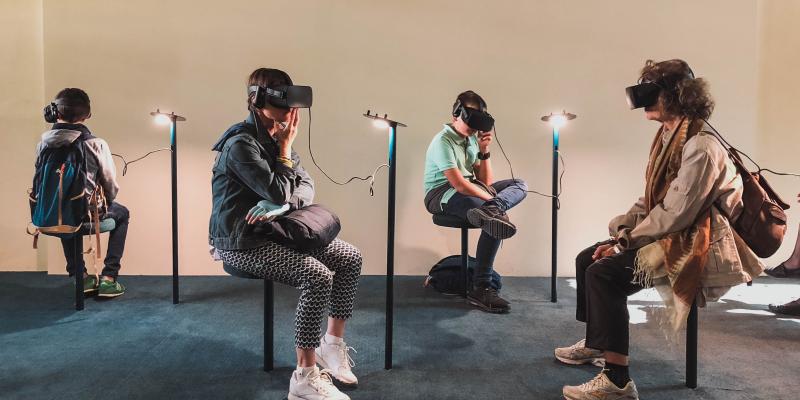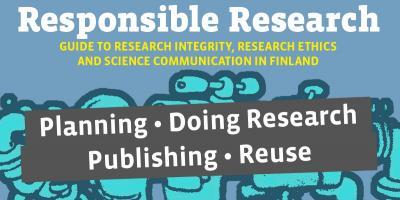
Open Science is one of the key aims of European science policy. Increasing openness of research outputs is supported by recommendations and regulations.
Open science is an essential part of a responsible research environment. However, making research-based knowledge openly accessible is neither a quick nor a simple process. Promoting openness requires a strong value foundation as well as internationally harmonised regulations and guidelines. In this article, we examine the principles and structures that form the basis for advancing openness at both the national and international levels.
Openness as a fundamental value and right
Openness is closely tied to the core values of the European Union, such as freedom, equality, and democracy. The right to access and utilise research-based knowledge is enshrined in the United Nations Universal Declaration of Human Rights (Article 27(1)). Promoting open science and research demonstrates a strong commitment to putting these principles into practice.
Tutkitun tiedon avoimuus lisää myös tasa-arvoista pääsyä tutkimustiedon äärelle. Kun tutkimus on avointa ja kaikkien saatavilla, tutkijat voivat hyödyntää uusinta tietoa sijainnistaan ja työnantajastaan riippumatta. Tämä edesauttaa yhdenvertaisempaa osallistumista tieteen eturintamaan ja tukee tieteen kehittymistä globaalisti. Tutkitun tiedon rajaaminen voi aiheuttaa myös suoria yhteiskunnallisia vaikutuksia jos esimerkiksi viimeisin terveystieto ei ole päättäjien ja paikallisten tutkijoiden käytettävissä.
Kaikkien yhteiskunnan toimijoiden yhdenvertainen pääsy tutkittuun tietoon vähentää eriarvoisuutta ja yhteiskunnallista jakautumista. Tiedolla on valtaa, ja vallan tasapuolinen jakautuminen edistää vakaata ja demokraattista kehitystä.
Openness helps to build a fairer and more equal society
Openness is particularly important in publicly funded research, as the outputs of such research should be accessible to society as a whole.
The openness of research-based knowledge contributes to a fairer and more equal society. For example, the openness of publicly funded information is established as a default in the Open Data Directive (EU) 2019/1024 (Article 10, Paragraph 1). If access needs to be restricted, it must always be justified with specific reasoning.
Open access to research-based knowledge also promotes equal access to research information. When research is open and available to everyone, researchers can utilise the latest knowledge regardless of their location or employer. This supports more equitable participation at cutting edge of science and fosters the global advancement of knowledge. Restricting access to research-based knowledge can also have direct societal consequences if, for instance, the latest health information is unavailable to policymakers and local researchers.
Equal access to research-based knowledge for all societal actors reduces inequality and societal division. Knowledge is power, and the equitable distribution of power promotes stable and democratic development.
Openness in Science and Research as a Science Policy Objective
Openness is at the heart of European science policy discussions. The European core principle for research-based knowledge is summarised in the phrase, "as open as possible, as restricted as necessary." This principle underpins all European regulations concerning science and research.
A significant new initiative highlighting the importance of openness relates to European fundamental values and freedoms. Traditionally, four fundamental freedoms have been recognised in Europe, promoting the movement of goods, services, capital, and people. The Letta Report (2024) proposes a fifth freedom: the freedom to advance research, education, and innovation across Europe. According to the report, this fifth freedom emphasises open science as a means to ensure research accessibility and seamless collaboration across disciplines, sectors, and borders.
Open science makes an impact. By making research outputs accessible, breaking down silos, and accelerating new innovations, researchers are empowered to build on each other’s work more efficiently. The benefits of openness became evident during the search for solutions to the COVID-19 pandemic. The crisis response was expedited by extensive international collaboration, where openness played a central role.
At the core of advancing the freedom of research and education remains the need for freely flowing research-based knowledge.
Openness needs boundaries
Openness is not an absolute value. We must continuously examin its. There has always been an understanding that not everything can be made open. Reasons for restricting openness include data protection, security, or economic interests, such as in the case of patents.
The fundamental premise has been to recognise that alongside openness lies the need to consider its limits. It is essential to evaluate risks. For instance, Recommendations on Research Security this year have emphasised the proportionality of measures that limit openness. In setting new boundaries for open science due to new geopolitical threats, the importance of openness is seen as part of upholding and advancing the Union’s values and fundamental rights, academic freedom, and the integrity of research.
Promoting Open Science in Finland
Achieving openness requires an ongoing effort. In Finland, the advancement of openness strongly adheres to the principles of equality and community. Through AVOTT collaboration, we actively engage in European and broader international discussions to promote openness.
Our task in AVOTT coordination is clear. The value of openness for research itself and for society as a whole is evident and meaningful. Our work to promote openness is grounded in strong core values and a clear science policy vision. By working together, we are stronger and can accomplish more.
Teksti: Henriikka Mustajoki
Kuva: Mārtiņš Zemlickis, Unsplash (maraton)
You might also be interested in
Tämä teos on lisensoitu Creative Commons Nimeä 4.0 Kansainvälinen -lisenssillä. Detta verk är licensierat under en Creative Commons Erkännande 4.0 Licens. This work is licensed under a Creative Commons Attribution 4.0 International license.


